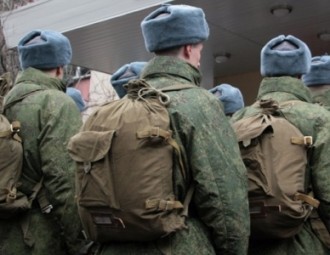Opinion: Despite Lukashenka’s words, he is unlikely to send a peacekeeping mission to Ukraine

The parties to the Ukrainian conflict regard Belarus’ potential participation in the peacekeeping mission as strengthening Russia’s position.
Belarus is unlikely to send her own peacekeeping mission to Ukraine. Firstly, Minsk is highly dependent on the Kremlin in terms of military cooperation; secondly, the sheer idea of Belarusans fighting in foreign conflicts is extremely unpopular among society. However, by showing their support for a peaceful settlement of the conflict in Ukraine, the Belarusan authorities hope to strengthen their international position as key players in Europe’s regional security.
In an interview with Euronews, President Lukashenka said he was ready to send Belarusan peacekeepers to Ukraine.
Amid the conflict, the Belarusan authorities have raised their international visibility and have broken the country’s international isolation. In addition, President Lukashenka’s approval ratings hit new highs inside Belarus.
Earlier, President Lukashenka had repeatedly refused to mediate in the Ukrainian crisis. However, after relatively successful negotiations about a ceasefire in eastern Ukraine, President Lukashenka has become more vocal in advocating for peace. In an interview with Euronews, he proposed to send Belarus’ peacekeeping forces to Donbas, “it is a very dangerous and scary thing for me, but if needed, since there is mistrust between Russia and the West, the West and Russia, US and Russia and Russia and US and there is no trust between the parties in the conflict, I would be prepared to use my military forces in order to separate the conflicting parties”.
Despite Belarus’ relatively independent stance regarding the conflict in eastern Ukraine, the parties in the conflict do not regard the Belarusan Army as a neutral peacekeeping force. Belarus’ potential participation in the peacekeeping mission is regarded as strengthening Russia’s position. For instance, separatists in eastern Ukraine have supported President Lukashenka’s proposal to send the peacekeeping force, but Ukraine’s Foreign Ministry has rejected Belarus’ proposal.
Regardless of Belarus’ attempts to adhere to a policy that is somewhat independent from the Kremlin’s, military cooperation – both on a technical level, and between armies - is the area where integration of the two countries is the most advanced. Belarus has signed several military cooperation agreements with Russia and both countries are members of the CSTO, an intergovernmental military alliance.
Interestingly, after Lukashenka voiced his proposal to send Belarus’ peacekeepers to Ukraine, Vakulchik, head of the Belarusan KGB, warned Belarusans about criminal prosecution for fighting in Ukraine. There is evidence that Belarusans are fighting in the conflict in Ukraine on both sides, however IISEPS polls suggest that the majority of Belarusans are not ready to take part in military actions in Ukraine. In addition, the president’s approval rating has grown in 2014 mainly due to peoples’ expectations that Belarus will not become involved in military conflicts.
The Belarusan authorities seek to speed up the settlement process with the EU and US in the near future so as to receive economic and financial aid before the presidential campaign in 2015.
Based on the article at Solidarity with Belarus Information Office
-
03.01
-
07.10
-
22.09
-
17.08
-
12.08
-
30.09








































